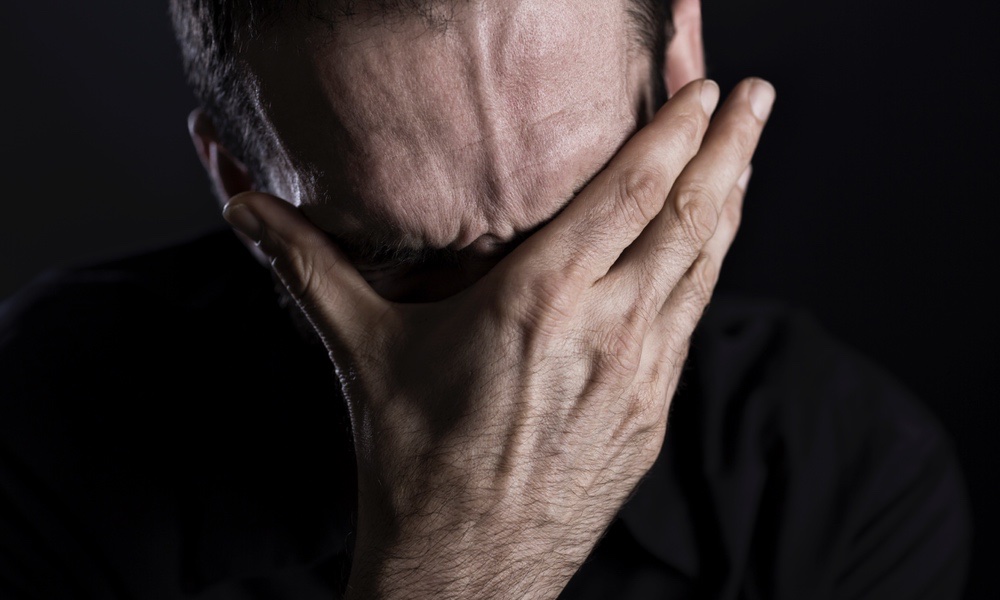Major depression goes beyond just having a case of the blues. It’s a serious mental health disorder that interferes with daily functioning by affecting how you think, feel and act.
Five percent of adults worldwide live with major depression according to the World Health Organization, and three-quarters of those do not get the help they need. In some cases, that’s because no standard treatment has worked or is readily available. For others, treatment can be too expensive. A new study points to an effective and relatively low-cost treatment that uses bi-weekly injections of a drug called ketamine.
Ketamine is a dissociative anesthetic that has some hallucinogenic effects. It acts on certain chemicals in the brain to distort sight and hearing and can result in someone feeling detached from reality.
Past studies, as well as practical use in clinical settings, have shown that ketamine can help with depression. A downside is that the treatment can be very expensive.
Recently, a low-cost generic version of the drug has proved very effective. Led by researchers at University of New South Wales, Sydney and the affiliated Black Dog Institute, in collaboration with six academic clinical mood disorder units in Australia and one in New Zealand, a study, found that a low-cost generic version of the drug resulted in more than one in five of the participants achieving total remission from their depressive symptoms after a month of bi-weekly ejections. Another one-third of the participants had their symptoms improve by at least 50 percent.Generic ketamine is much less expensive than the patented S-ketamine nasal spray currently being used in Australia.
“We found that in this trial, ketamine was clearly better than the placebo — with 20 percent reporting they no longer had clinical depression compared with only 2 percent in the placebo group. This is a huge and very obvious difference and brings definitive evidence to the field which only had past smaller trials that compared ketamine with placebo,” lead researcher, Colleen Loo, clinical psychiatrist and Professor of Psychiatry at the University of New South Wales and the Black Dog Institute, Sydney, Australia, said in a press release.
The researchers recruited 179 people with treatment-resistant depression. All were given either an injection of a generic form of ketamine that is already widely available in Australia as a drug for anesthesia and sedation — or a placebo of a sedating drug, Midazolam.
People in both groups received two injections a week in a clinic where they were monitored for around two hours, while the effects of the two different drugs wore off. The treatment lasted for a month; and participants were asked to assess their mood at the end of the trial and again, one month later.
- The placebo, Midazolam, is a sedative normally administered before general anesthesia. Researchers chose this drug so that it would not be obvious to the participants who had received ketamine and who had been given a placebo.
- People who had received electroconvulsive therapy (ECT) for their depression in the past were allowed to participate in the study.
- Generic ketamine was injected into the skin rather than by drip — reducing time, medical complexity and cost.
The study identified another benefit among participants receiving ketamine in addition to the reduction in clinical depression: Generic ketamine is much less expensive than the patented S-ketamine nasal spray currently being used in Australia.
“With the S-ketamine nasal spray, you’re out of pocket by about $1200 for every treatment by the time you pay for the drug and the procedure, whereas for generic ketamine, you’re paying around $300-350 for the treatment including the drug cost,” Loo said.If you are having suicidal thoughts, call the Suicide Crisis Lifeline — 988.
- Insomnia or excessive sleeping
- Irritability
- Loss of interest in activities that were once enjoyable
- Persistent thoughts of something bad happening
- Thoughts of death or suicide or suicide attempts
- In very severe cases, psychotic symptoms such as hallucinations or delusions Inability to take care of oneself such as eating, bathing or fulfilling family or work responsibilities.
There are several other treatments besides ketamine for people suffering with severe depression. If you are experiencing these symptoms, speak with your healthcare provider. If you have suicidal thoughts call 988, the Suicide Crisis Lifeline.
The study is published in The British Journal of Psychiatry.





